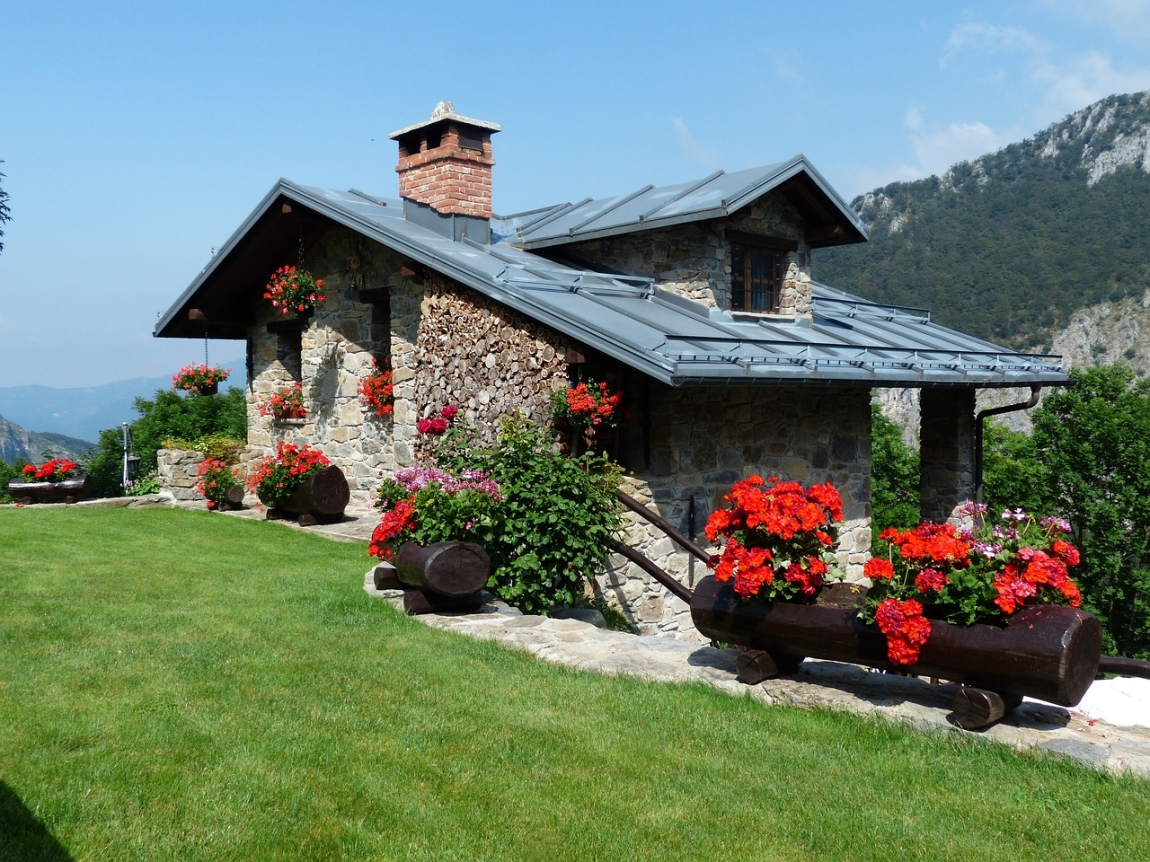Selling a property in the Philippines can be a rewarding endeavor, but determining the right price is crucial for a successful sale. Are you eager to unlock the potential of your property and achieve a fast home sale?
In this comprehensive guide, we will explore effective property sales strategies tailored for the Philippines. From understanding the market to staging your home for maximum appeal, we’ll equip you with the knowledge and tactics to determine the perfect price and attract potential buyers.

Get ready to embark on a journey to sell your property with confidence and achieve your goals in the dynamic Philippine real estate market.
Understanding the Philippine Real Estate Market
The Philippine real estate market is a dynamic landscape that requires a solid understanding to price your property effectively. By gaining insights into current trends and market indicators, you can make informed decisions that align with buyer preferences.
In this section, we will provide an overview of the Philippine real estate market, allowing you to navigate its intricacies with confidence.
The real estate market in the Philippines has been experiencing notable growth in recent years. Urban areas, such as Metro Manila and Cebu, have seen a surge in property development, fueled by the country’s strong economy and increasing demand for residential and commercial spaces.
Additionally, the growth of the business process outsourcing (BPO) industry has contributed to the rise in demand for office spaces.
It’s essential to stay updated on key trends and market indicators to accurately assess property values. Factors such as supply and demand, property types, and location can significantly impact pricing decisions.
Monitoring market conditions and understanding buyer preferences are critical to positioning your property competitively.
Furthermore, keeping track of changes in government regulations and policies related to real estate can help you make informed decisions. Familiarize yourself with legal requirements, taxes, and zoning regulations that may affect property prices and transactions.
Researching Comparable Properties
To determine the right price for your property in the Philippines, it’s crucial to research and analyze comparable properties in your area. By identifying similar properties and analyzing recent sales data, you can gain valuable insights into market trends and set a competitive price.
In this section, we will guide you through the process of researching comparable properties effectively.
Identifying Similar Properties in Your Area
Start by narrowing down your search to properties that share similarities with yours. Consider factors such as property type, size, location, and amenities.
Online real estate portals and listing websites can be valuable resources for finding comparable properties. Pay attention to properties that have recently been sold or are currently listed for sale.
Analyzing Recent Sales Data and Market Trends
Once you have identified comparable properties, analyze the sales data to understand the prevailing market trends. Look for patterns in terms of pricing, time on the market, and buyer preferences.
Take note of any fluctuations in property values and consider how they may impact your own pricing strategy.
Compare the condition and features of the comparable properties to your own. Are there any notable differences that may warrant adjustments in price?
For example, if a comparable property has recently undergone renovations or offers additional amenities, it may justify a higher price point.
By thoroughly researching comparable properties and analyzing market trends, you can gain a realistic understanding of the value of your property. This information will serve as a solid foundation for determining the right price that reflects market conditions and attracts potential buyers.
Evaluating Property Features and Condition

When determining the right price for your property in the Philippines, it’s essential to thoroughly evaluate its unique features and condition. Factors such as property size, amenities, layout, and overall condition can significantly influence its market value.
In this section, we will guide you through the process of evaluating property features and condition to make informed pricing decisions.
Assessing the Unique Selling Points of Your Property
Begin by identifying the distinctive features and selling points of your property. Does it have a spacious backyard, a stunning view, or convenient access to amenities?
These unique attributes can contribute to its value and differentiate it from other properties in the market. Highlighting these strengths when determining the price will attract potential buyers looking for such features.
Understanding the Impact of Property Condition on Pricing
Evaluate the condition of your property objectively. Consider factors such as the age of the building, maintenance history, and any necessary repairs or renovations.
A well-maintained property with updated fixtures and a clean appearance generally commands a higher price. However, if significant repairs or renovations are needed, it may be necessary to adjust the price accordingly.
Keep in mind that the tastes and preferences of potential buyers can vary. Understanding the market demand and buyer expectations in the Philippines can help you gauge how the condition of your property will be perceived and valued.
By thoroughly evaluating the unique features and condition of your property, you can accurately assess its market value. This will enable you to set a competitive price that reflects its strengths and attracts potential buyers.
Consulting with Real Estate Professionals
When determining the right price for your property in the Philippines, seeking guidance from real estate professionals can provide valuable insights and expertise. Whether it’s a real estate agent or an appraiser, their knowledge of the local market can help you make informed pricing decisions.
In this section, we will explore the benefits of consulting with real estate professionals for expert guidance in determining the value of your property.
Engaging a Real Estate Agent or Appraiser for Expert Guidance
Real estate agents are well-versed in the local market dynamics and have access to comprehensive data and resources. They can provide a comparative market analysis (CMA) that examines recent sales of similar properties, helping you understand the pricing trends and competitive landscape.
Appraisers, on the other hand, specialize in evaluating property values objectively. They take into account various factors, including property size, condition, location, and market conditions, to determine an accurate valuation.
Their expertise can be especially valuable if your property has unique characteristics or if you require a formal appraisal.
Benefits of Professional Insights in Determining Property Value
Consulting with real estate professionals offers several advantages. They can provide an unbiased assessment of your property’s value based on their market knowledge and experience.
Their expertise can help you avoid overpricing, which may deter potential buyers, or underpricing, which could result in missed opportunities for profit.
Real estate professionals can also offer guidance on pricing strategies, marketing techniques, and negotiation tactics. Their insights into buyer preferences and market trends can inform decisions on staging, marketing campaigns, and target audience positioning, increasing the likelihood of a successful sale.
Pricing Strategies and Approaches

Choosing the right pricing strategy is crucial when determining the value of your property in the Philippines. Various approaches can be employed, each with its own considerations and benefits.
In this section, we will explore different pricing strategies and approaches to help you determine the right price for your property effectively.
Comparative Market Analysis (CMA) Method
The Comparative Market Analysis (CMA) method involves analyzing recent sales data of comparable properties to determine a competitive price. By assessing the selling prices of similar properties in your area, you can gain insights into the market trends and set a price that aligns with current buyer expectations.
This approach helps ensure your property is priced within a reasonable range, increasing its attractiveness to potential buyers.
Cost-Based Valuation vs. Market-Based Valuation
When considering pricing strategies, you can opt for either a cost-based valuation or a market-based valuation approach. Cost-based valuation involves determining the value of your property based on the cost of land, construction, and improvements.
While this method provides a solid foundation, it may not always reflect market demand and fluctuations.
On the other hand, a market-based valuation relies on analyzing the current market conditions, buyer preferences, and recent sales data to determine the value of your property. This approach takes into account the dynamic nature of the real estate market and ensures your price is aligned with the prevailing trends and demands.
Selecting the appropriate pricing strategy and approach requires careful consideration of your property’s unique characteristics, the local market conditions, and buyer expectations. By evaluating these factors, you can set a price that is attractive to potential buyers while still aligning with your financial goals.
Adjusting for Market Conditions and Economic Factors
To determine the right price for your property in the Philippines, it’s crucial to consider the current market conditions and economic factors that may influence property values. By understanding the dynamics of the real estate market and the broader economic landscape, you can make informed pricing decisions.
In this section, we will explore the importance of adjusting for market conditions and economic factors when pricing your property.
Considering Supply and Demand Dynamics
Supply and demand play a significant role in shaping property prices. Understanding the balance between the number of properties available for sale and the number of potential buyers in your area is crucial.
In a seller’s market with high demand and limited inventory, you may have more flexibility to set a higher price. However, in a buyer’s market with an excess supply of properties, pricing competitively becomes essential to attract potential buyers.
Impact of Economic Factors on Property Prices
Economic factors, such as interest rates, inflation, and job market conditions, can also impact property values. For instance, low-interest rates tend to make borrowing more affordable, stimulating demand and potentially driving up prices.
On the other hand, economic downturns or uncertainties may dampen buyer confidence and lead to a more cautious market.
Stay informed about the broader economic trends and how they may influence the real estate sector. Keep track of indicators such as GDP growth, consumer sentiment, and government policies that may affect property values.
This knowledge will help you adjust your pricing strategy accordingly and position your property competitively.
By being aware of market conditions and economic factors, you can adjust your pricing strategy to meet the demands of the Philippine real estate market. In the next section, we will discuss the importance of factoring in the location and neighborhood when determining the right price for your property.
Factoring in Location and Neighborhood
The location and neighborhood of your property in the Philippines are key determinants of its value. Factors such as proximity to amenities, transportation, schools, and the overall desirability of the neighborhood can significantly influence pricing decisions.
In this section, we will explore the importance of factoring in the location and neighborhood when determining the right price for your property.
Evaluating the Influence of Location on Property Value
The location of your property plays a crucial role in its market value. Properties situated in prime locations, such as city centers, business districts, or sought-after residential areas, tend to command higher prices.
Desirable locations with access to amenities, recreational facilities, and essential services are attractive to potential buyers, increasing the value of your property.
Consider the specific attributes of the neighborhood, such as its safety, cleanliness, and aesthetic appeal. Neighborhoods with well-maintained streets, green spaces, and a sense of community often have a positive impact on property values.
Conversely, properties located in less desirable or underdeveloped areas may require adjusting the price accordingly.
Analyzing Neighborhood Amenities and Development Plans
The availability of amenities within the neighborhood can significantly affect property values. Factors such as proximity to shopping malls, restaurants, parks, and schools can make a property more desirable to potential buyers.
Additionally, consider any ongoing or planned development projects in the area, such as infrastructure improvements or commercial developments, as they can have an impact on property values in the future.
Research the local area and gather information about upcoming developments, transportation infrastructure, and other neighborhood enhancements. Understanding these factors will help you assess the long-term potential of your property and its value in relation to the neighborhood’s growth and desirability.
Pricing for a Quick Sale vs. Maximizing Profit

When determining the right price for your property in the Philippines, you may face the decision of whether to prioritize a quick sale or maximize your profit. This dilemma is akin to walking a tightrope, where finding the perfect balance is crucial.
In this section, we will explore the considerations involved when deciding between pricing for a quick sale or aiming to maximize profit, ensuring you make a decision that aligns with your goals.
Strategies to Attract Buyers with Competitive Pricing
If your goal is to secure a quick sale, consider pricing your property competitively. Setting a slightly lower price than comparable properties in the area can attract attention and generate increased buyer interest.
It’s like casting a wide net into the sea, inviting potential buyers to take notice of your property amidst the competition. However, keep in mind that this approach may result in a lower profit margin.
Balancing Profit Goals with Market Demand
On the other hand, if maximizing profit is your priority, it’s important to carefully assess the market demand and the value your property brings. Consider the unique features, location, and desirability of your property and compare it to similar properties in the market.
It’s like evaluating a precious gemstone, understanding its worth and how it shines brighter than the rest. By pricing strategically, you can position your property as a valuable investment, potentially commanding a higher price.
Finding the balance between pricing for a quick sale and maximizing profit requires a deep understanding of the current market conditions and buyer expectations. Evaluate your financial goals, time constraints, and the overall demand for properties in your area.
This will enable you to make an informed decision that best aligns with your needs.
Finalizing the Right Price
In the symphony of selling your property in the Philippines, finalizing the right price is the crescendo that determines the success of your endeavor. Like a skilled conductor, you must carefully craft the perfect balance, blending market realities and your financial goals.
In this section, we will guide you in the process of finalizing the right price for your property, ensuring a harmonious finale to your selling journey.
Setting a Realistic and Competitive Listing Price
Begin by evaluating all the information you have gathered – from researching comparable properties to considering market conditions, property features, and location. This is your sheet music, guiding your pricing decisions.
Set a realistic and competitive listing price that aligns with the current market trends and buyer expectations. Think of it as striking a chord that resonates with potential buyers, capturing their attention and interest.
Revisiting and Adjusting the Price as Necessary
Remember, the real estate market is dynamic, and adjustments may be necessary along the way. Keep a vigilant eye on market changes, feedback from potential buyers, and the overall interest in your property.
Be willing to make changes, whether it’s fine-tuning the pricing slightly or making strategic adjustments to accommodate market fluctuations. Flexibility is your instrument, allowing you to adapt and optimize your pricing strategy for the best outcome.
By finalizing the right price for your property, you create the perfect symphony of value and appeal. The crescendo of your efforts will capture the attention of potential buyers, inviting them to take part in your selling journey.
Like a grand finale, the right price will orchestrate a successful sale and help you achieve your goals in the dynamic Philippine real estate market.
Quick Note
Congratulations! You have reached the final notes of our comprehensive guide on determining the right price for your property in the Philippines.
Throughout this journey, we have explored various aspects of the real estate market, pricing strategies, and factors that influence property values. Now, armed with knowledge and insights, you are ready to conquer the dynamic Philippine real estate market and achieve your selling goals.
Recapping our symphony of guidance, we began by emphasizing the importance of pricing your property right, understanding the market, and researching comparable properties. We then delved into evaluating your property’s unique features and condition, consulting with real estate professionals for expert guidance, and considering different pricing strategies and approaches.
We discussed the significance of adjusting for market conditions and economic factors, factoring in the location and neighborhood, and finding the delicate balance between pricing for a quick sale or maximizing profit. Finally, we concluded by emphasizing the importance of finalizing the right price, staying adaptable, and making necessary adjustments to ensure a successful selling experience.
As you step into the spotlight of the Philippine real estate market, remember that your journey doesn’t end here. Stay attuned to market trends, listen to the feedback of potential buyers, and fine-tune your pricing strategy as needed.
With each interaction, you will fine-tune your performance, refining your approach to achieve the desired outcome.
Now, go forth and let your property’s value shine through. Utilize the knowledge and insights you have gained to attract potential buyers, showcase your property’s unique qualities, and ultimately achieve a successful sale.
The stage is set, and the audience awaits. It’s time to orchestrate your success in the Philippine real estate market.
Break a leg, maestro, and may the melodies of success fill your selling journey!






